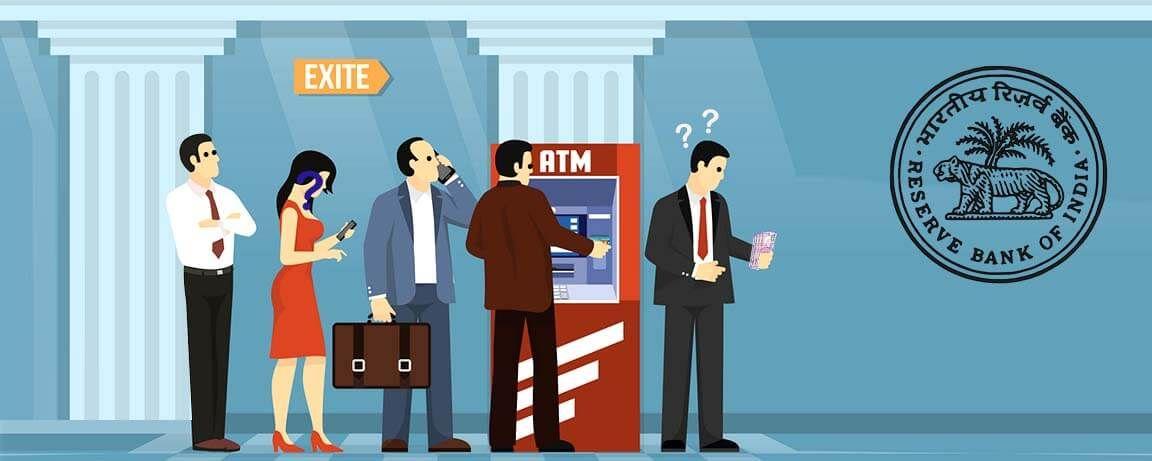Will RBI Approve of Limit on ATM Withdrawals and Hike ATM Charges?
An RBI committee headed by the chief executive of Indian Banks’ Association has reportedly recommended a hike in inter-change charges for all transactions carried out at ATMs across the country. The committee has also suggested a capping of Rs 5000 on the withdrawal limit per transaction and a levy of additional charge for withdrawal of a larger than the capped amount through ATMs.
Currently the cash withdrawal limit varies from bank to bank. For instance a customer can withdraw Rs 10,000 in a single transaction and Rs 20,000 in a day from SBI ATMs. The ICICI Bank allows customers to withdraw anywhere between Rs 50,000 to Rs 1.5 Lakh, as per the Card.
According to this news, a Hyderabad-based techie named Srikanth L had exercised a request under RTI Act and accessed the results of report. The report is not available in public domain. This committee was appointed last year in June 2019 for reviewing ATM inter-change fee structure. It submitted its recommendations to RBI however the final outcome is not known yet.
Further the recommendations included an increase of 16 percent, i.e Rs 17 from Rs 15 for financial transactions over the free ATM transactions and Rs 7 from Rs 5 for non-financial transactions such as PIN Change, balance overview etc at centres where population is over one million.
For ATM centres where population is less than one million the committee recommended an increase of 24 % on blended basis.
The report also observed that ATMs are cost effective than in-branch bank transactions.
Besides IBA, other members of this committee were CEO of National Payments Corp of India (NPCI), Dilip Asbe; Chief general manager of State Bank of India (SBI) Giri Kumar Nair; Group head for liability products at HDFC Bank S Sampath Kumar; Director of Confedration of ATM Industry, K Srinivsas; and CEO of Tata Communications Payment Solutions Limited Sanjeev Patel.
